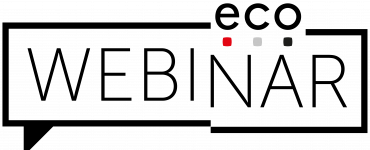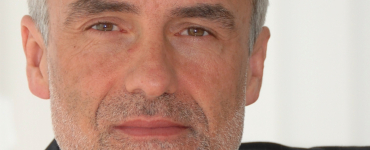Internationalized domain names and e-mail addresses are extending the Internet to include new languages and alphabets
3.2 billion people are online worldwide, according to the International Telecommunication Union (ITU), and around 45 percent of all households have access to the Internet. Despite these impressive figures, the Internet was until recently not as international as it should be, says lawyer Thomas Rickert, Director of Names & Numbers at eco – Association of the Internet Industry e. V. Only since the increasing support of Unicode characters in internationalized domain names (IDN) and e-mail address internationalization (EAI) have people with languages based on Han, Cyrillic, Hangul, Thai, Arabic, Hebrew and Greek been able to use the Internet to its fullest extent in their mother tongue, without needing to change their keyboard.
“IDNs and EAI represent a breakthrough in the true internationalization of the Internet, as now characters other than ASCII can be used both to the left and the right of the dot,” Rickert explains. This “true internationalization” is particularly important because by far the largest growth rates are expected in those areas of the world which most benefit from this change – above all, Asia.
“Of course, it will take quite some time until all systems around the world are capable of processing the new languages and alphabets,” the eco expert concedes. For example, not all online portals are yet primed for the opening of a user account with one of the new e-mail addresses. Top-level domains that exceed the previously standard length of two or three characters are also not yet accepted everywhere. The Semitic languages – which read from right to left – and the use of different character types are different levels, for example second-level or top-level domains, have proven to be “especially tricky”.
contributing to improvement in Universal Acceptance
Lars Steffen from eco is working on the improvement of Universal Acceptance as part of the Universal Acceptance Steering Group (UASG), which was established by the Internet Corporation for Assigned Names and Numbers (ICANN). The UASG wishes to publish a series of documents by April this year which will simplify the job of Chief Information Officers (CIOs), Chief Technologies Officers (CTOs), and other IT managers around the globe in expanding their IT infrastructure to include the new languages and alphabets.
“The new internationalization standards IDN and EAI open up new target groups and new markets for companies. We want to help the industry to address this enormous potential better and faster,” says Lars Steffen.
Thomas Rickert and Lars Steffen are available at any time for press interviews (press contact: Thomas.Mueller@eco.de).
Interested companies can contact the eco Association at: numbers@eco.de
Meet Thomas Rickert (eco Director Names & Numbers) and Lars Steffen (Member Services) at the ICANN 55 Meeting in Marrakesh, 5 – 10 March.

WHD session – Domain Name Talks
powered by eco – Association of the Internet IndustryMeet the eco team, eco members and friends over two days of high-quality talks and panel sessions in the Circus Celebration theatre. Topics include Domain Name Talks about
- Universal Acceptance
- Brand TLDs and
- geoTLDs
plus Doing Business in Germany, Data Privacy, Surveillance and Market Consolidation in the Data Center Industry. All sessions are in English.
Agenda for Thursday, 17 March 2016:
Click here: Domain Name Talks
Free Ticket-Code: GL165VN



